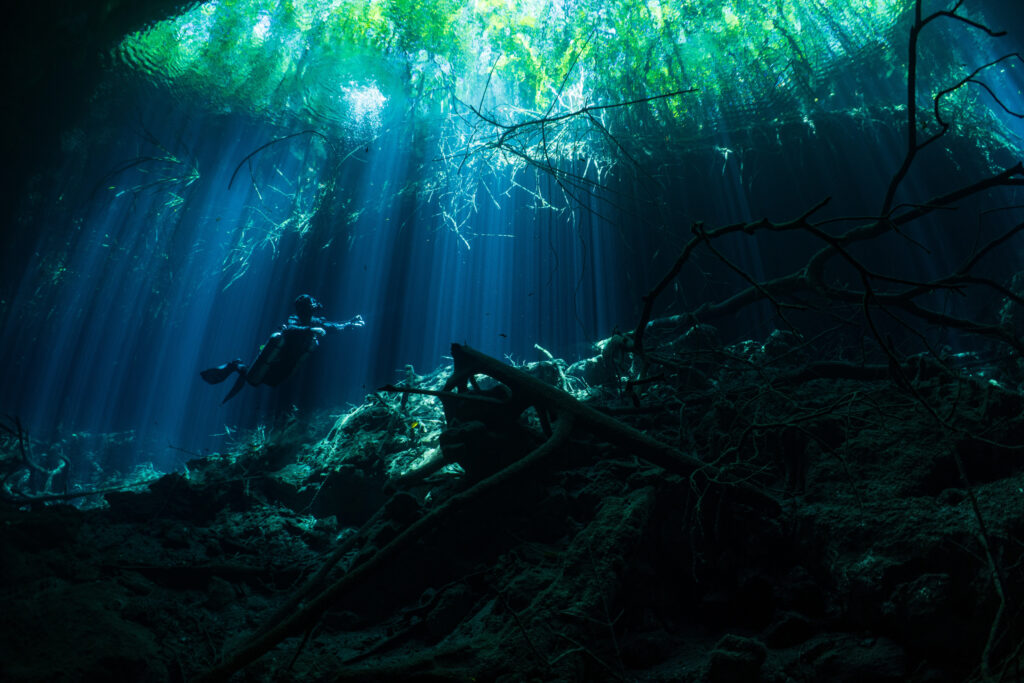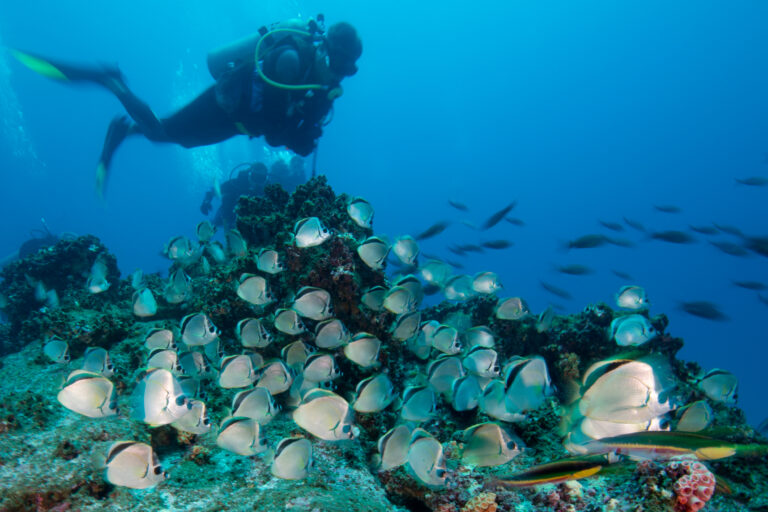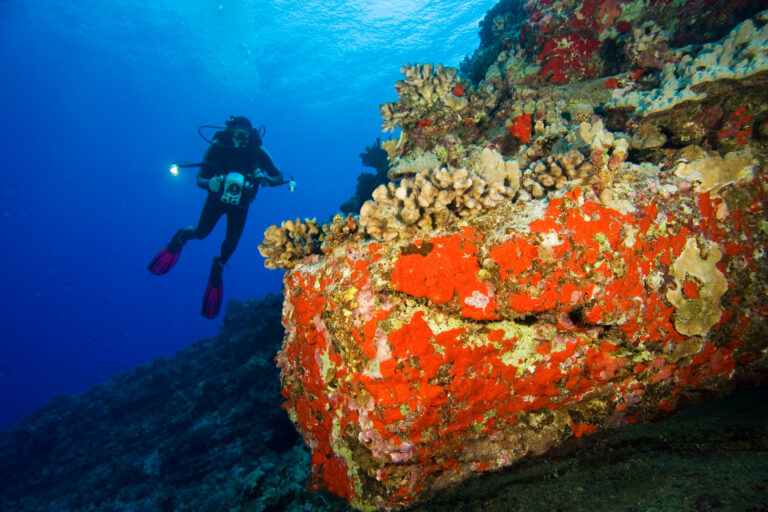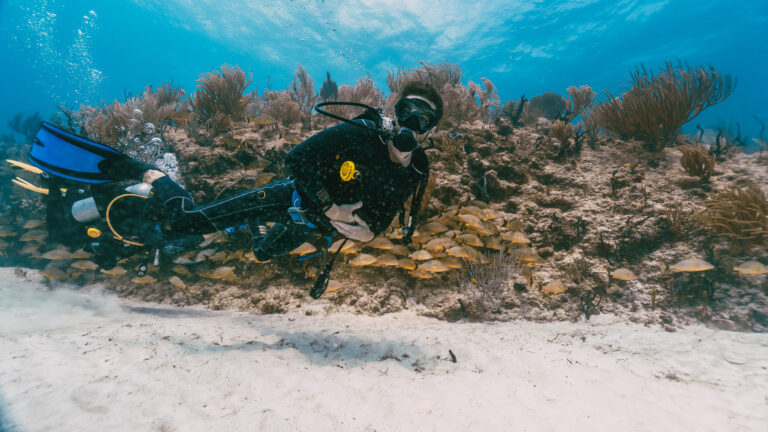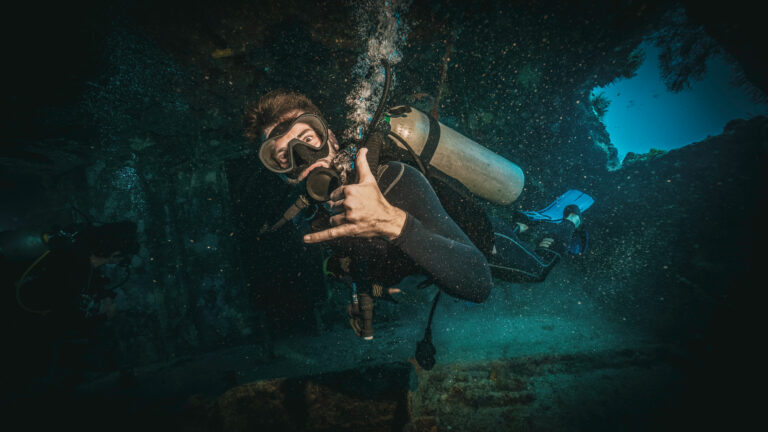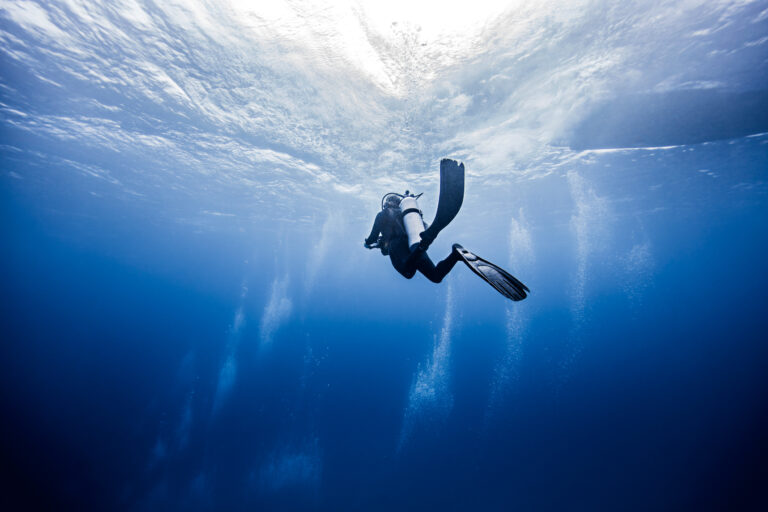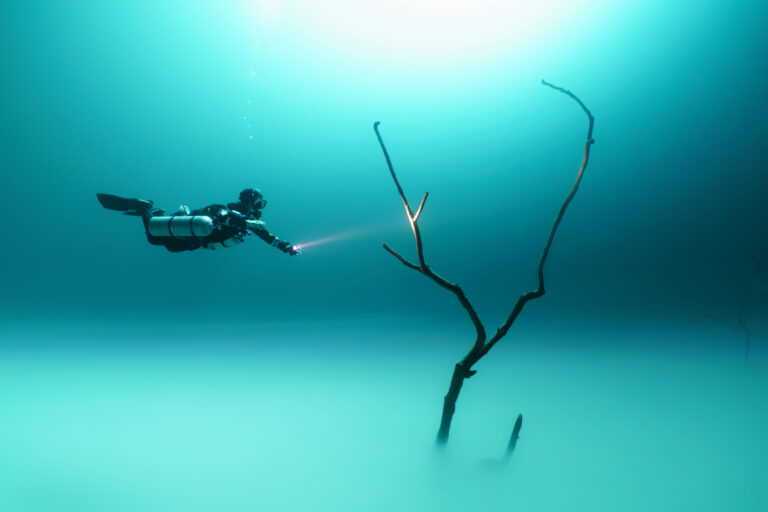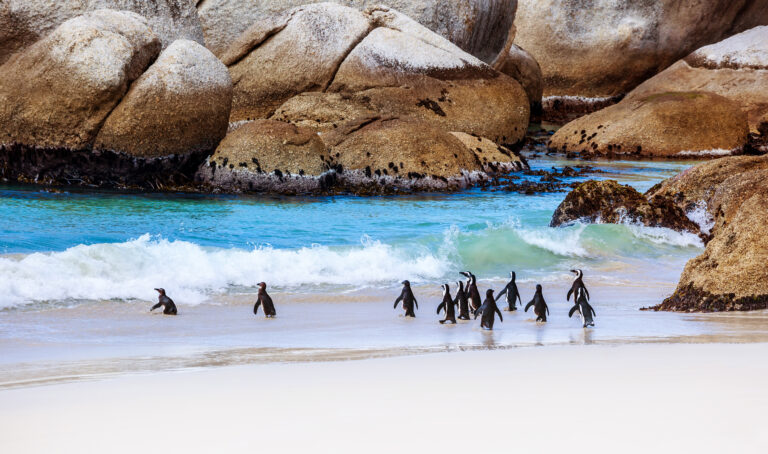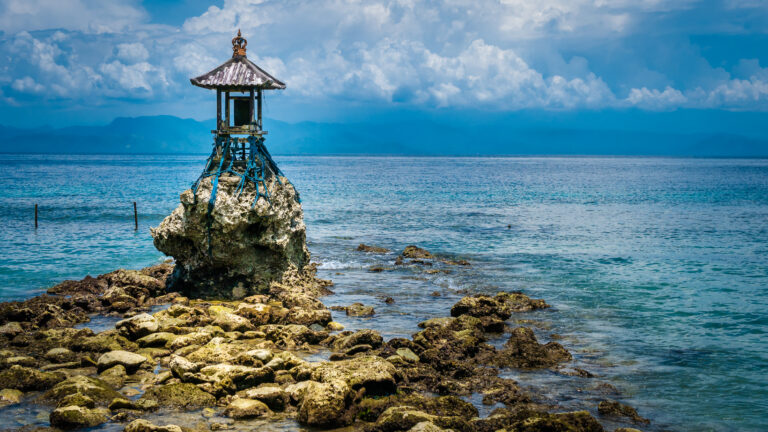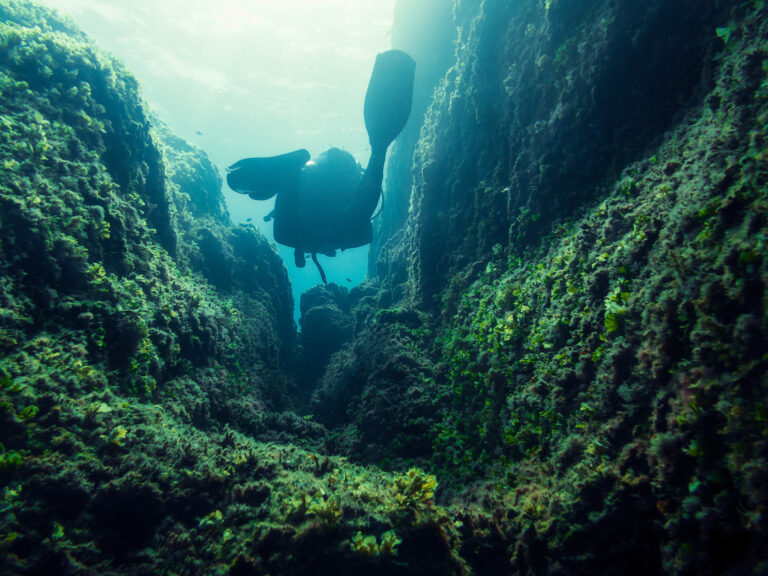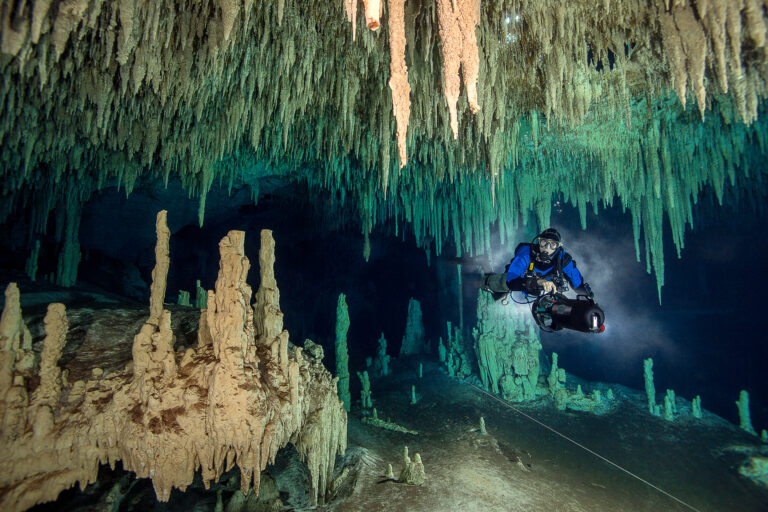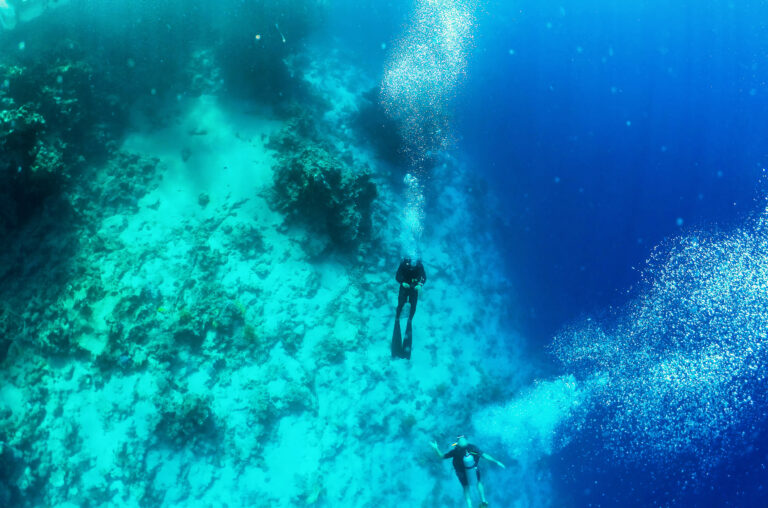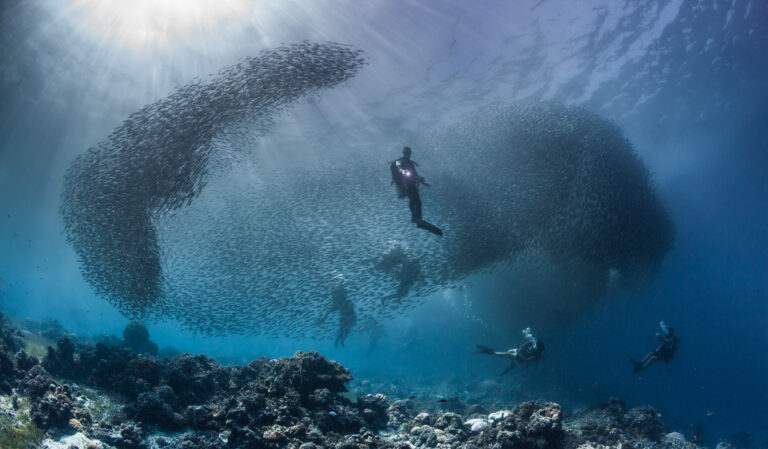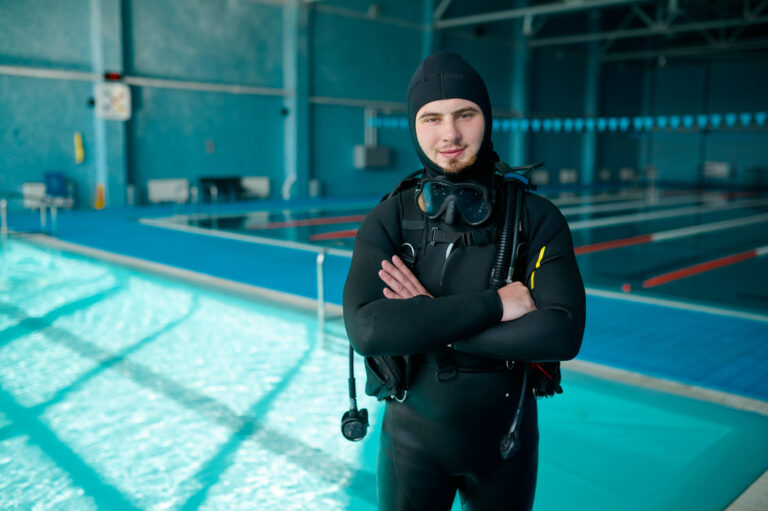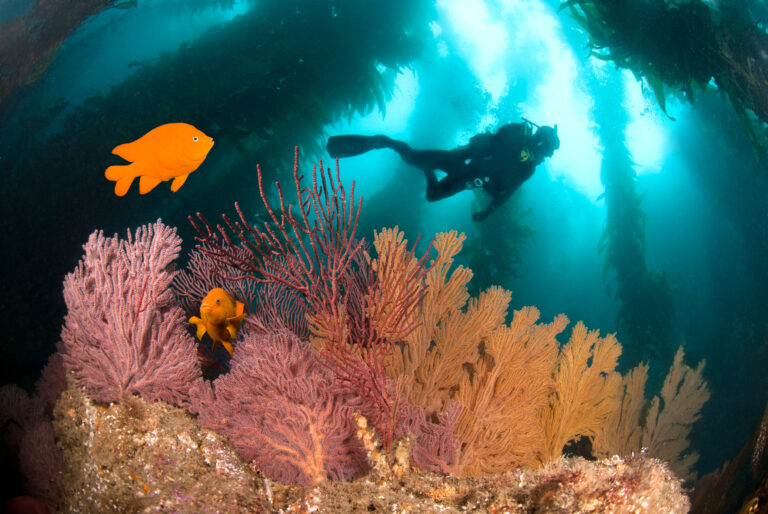SCUBA DIVERS’ TRAVEL GUIDE TO Wales
Wales is a land of contrasts, where rugged mountains meet sweeping coastlines, and ancient castles stand alongside modern cities. It is also a paradise for scuba divers, who can explore the rich marine life and fascinating history of this small but diverse country. Whether you are looking for wrecks, reefs, caves, or wildlife, Wales has something to offer for every level of diver. You can dive with seals, dolphins, sharks, and even whales in the clear waters of the Celtic Sea, or discover the secrets of the past in the sunken ships and planes that dot the coastline. You can also enjoy the scenic beauty and cultural heritage of Wales on land, with its stunning national parks, charming villages, and vibrant festivals. Wales is a destination that will surprise and delight you with its variety and charm. Come and see for yourself why Wales is a scuba diver’s dream.
LOCATION AND GEOGRAPHY
Wales, a country within the United Kingdom, offers a rugged coastline that stretches over 870 miles, encompassing parts of the Irish Sea and the Bristol Channel. Its underwater geography is as varied and dramatic as its terrestrial landscapes, featuring a mix of rocky reefs, sandy seabeds, and a plethora of shipwrecks that tell tales of maritime history. The Pembrokeshire Coast National Park in the southwest boasts some of the most picturesque and biodiverse dive sites, with the clear waters of the Celtic Sea providing visibility to explore the rich marine life. To the north, the Isle of Anglesey presents a different diving experience with its strong tidal currents and unique underwater topography. The nutrient-rich waters here support a vibrant ecosystem, making it a haven for divers interested in both ecological diversity and the challenges of more dynamic underwater environments. Whether exploring the remnants of sunken vessels off the Gower Peninsula or the submerged slate quarries in Snowdonia, Wales offers a compelling blend of underwater adventures set against a backdrop of stunning natural beauty and Celtic heritage.
VISA AND ENTRY REQUIREMENTS
Before embarking on your underwater adventure in the rugged coastal waters of Wales, it is essential to ensure that your travel documents are in order. Visitors from the European Union (EU), European Economic Area (EEA), and Switzerland do not require a visa for stays up to six months. However, if you’re traveling from outside these areas, you may need to apply for a Standard Visitor visa, which allows for a stay of up to six months and is suitable for recreational activities such as scuba diving. Always check the latest entry requirements before your trip, as visa policies can change. Ensure your passport is valid for the entirety of your stay, and it’s advisable to have at least six months remaining on it. Note that Wales is part of the United Kingdom, so UK immigration laws apply. Upon arrival, you may be asked to show proof of your return journey and sufficient funds for your stay, so come prepared to ensure a smooth entry to start your scuba diving experience in the captivating Celtic seas.
GETTING TO Wales
Getting to Wales for an unforgettable scuba diving adventure is a straightforward journey for both international and local travelers. For those flying in, the most convenient international gateways are Cardiff Airport (CWL) in the south and Manchester Airport (MAN) in the north, with Manchester being the larger hub offering a wider range of international flights. Upon arrival, divers can rent a car or take advantage of the UK’s extensive public transportation network, which includes trains and buses, to reach the rugged Welsh coastline. For those already in the UK, Wales is easily accessible by road or rail, with major motorways and train services connecting it to cities like London, Birmingham, and Manchester. Once in Wales, the Pembrokeshire and Gwynedd regions are renowned for their exceptional dive sites, offering a mix of marine life, underwater landscapes, and historical wrecks, all set against the backdrop of Wales’ stunning natural beauty.
BEST TIME TO DIVE
The best time to scuba dive in Wales is generally between late spring and early autumn, from May to September, when the water temperatures are more comfortable, ranging from 10°C to 17°C, and the visibility is at its peak, often exceeding 10 meters in some locations. During these months, the Welsh coast is teeming with marine life, including seals, dogfish, and a variety of crustaceans and fish, making for a vibrant underwater experience. Summer months, particularly July and August, offer the warmest water temperatures and longest daylight hours, allowing for extended dive times and the opportunity to explore the rich marine ecosystems found in areas like the Pembrokeshire Coast National Park or the waters around Anglesey. However, it’s worth noting that while summer provides the most favorable conditions, diving outside of peak season can also be rewarding, with fewer crowds and the chance to witness different species. Always check local dive conditions and consult with dive centers for the most up-to-date information before planning your dive.
ACCOMMODATION OPTIONS
Wales, with its rugged coastline and vibrant marine life, offers a variety of accommodation options to suit every scuba diver’s preference and budget. From charming bed and breakfasts in quaint coastal villages to luxury seafront hotels with stunning views of the Welsh shores, there’s a perfect spot for rest and relaxation after a day underwater. For those seeking a more immersive experience, several dive resorts and specialty lodges cater specifically to divers, providing gear storage, rinse tanks, and easy access to top dive sites. Campsites and holiday parks near Pembrokeshire and Anglesey allow for a closer connection with nature, often just a stone’s throw from beautiful beaches and hidden coves. Self-catering cottages and apartments offer the freedom to set your own schedule, making them ideal for groups or families. No matter where you choose to stay, the warm Welsh hospitality and the proximity to the rich marine environments of the Celtic Sea and the Irish Sea will make your diving trip to Wales both comfortable and memorable.
DIVE OPERATORS AND DIVE SHOPS
In the rugged coastal waters of Wales, a plethora of dive operators and shops stand ready to cater to the needs of underwater adventurers, from novices taking their first breaths beneath the waves to seasoned divers seeking new challenges. These establishments, often staffed by passionate and knowledgeable locals, offer a range of services including PADI and BSAC certification courses, guided dive tours to explore the rich marine life and historical wrecks, and equipment rentals for those traveling light. Welsh dive shops are typically well-equipped to handle the variable British weather, providing dry suits and advice on the best dive spots for current conditions. Many operators also emphasize conservation, educating divers on the importance of preserving the natural beauty and biodiversity of Wales’ underwater landscapes. Whether you’re looking to explore the vibrant ecosystems of the Pembrokeshire Coast National Park or the hauntingly beautiful wrecks off Anglesey, the dive operators in Wales are your gateway to an unforgettable subaquatic experience.
TRANSPORTATION WITHIN Wales
Transportation within Wales is convenient and varied, offering scuba divers easy access to the country’s rugged coastline and numerous dive sites. For those looking to explore the underwater treasures along the Pembrokeshire Coast or the marine life around Anglesey, renting a car is often the most flexible option, allowing for the transport of gear and the freedom to visit remote locations at your own pace. Public transport, including trains and buses, is reliable and connects major towns and cities, though reaching specific dive spots may require additional local taxi or shuttle services. Coastal towns often have boat charters available, which can take divers directly to offshore sites. For the more adventurous, some dive shops in coastal areas offer guided tours that include transportation as part of their dive packages, ensuring a hassle-free experience as you discover the underwater wonders of Wales.
CURRENCY AND PAYMENT METHODS
When planning a scuba diving trip to Wales, it’s important to note that the currency used is the British Pound Sterling (£). Credit and debit cards are widely accepted at most dive shops, accommodations, and restaurants, especially in popular diving areas like Pembrokeshire and Anglesey. However, it’s advisable to carry some cash for smaller purchases, such as at remote beach kiosks or when using parking facilities at dive sites, where card machines may not be available. ATMs are readily accessible in towns and cities, but less so in rural or secluded areas. It’s also worth checking with your bank about foreign transaction fees. Some dive operations might accept pre-booking and payments online, which can be convenient and might offer a better exchange rate. Always have a backup payment method and inform your bank of your travel plans to avoid any issues with card usage while enjoying the stunning underwater landscapes of Wales.
LANGUAGE AND COMMUNICATION
When diving in Wales, communication underwater follows the universal hand signals used by divers around the world, ensuring that regardless of linguistic background, divers can share important information such as air supply, direction, and potential hazards. Above the water, the primary language spoken is English, but Wales is a bilingual country with Welsh (Cymraeg) also widely spoken, especially in the northern and western regions. While not essential for diving activities, learning a few phrases in Welsh can enrich your experience and endear you to local residents. Dive operators and guides are typically fluent in English and often possess a working knowledge of other European languages to cater to international visitors. It’s advisable to confirm language capabilities with your chosen dive operator in advance if you’re not comfortable with English. In emergency situations, it’s crucial to know the relevant maritime and diving terminologies in English, as it’s the lingua franca for safety procedures and medical assistance in the diving community.
LOCAL CULTURE AND ATTRACTIONS
Wales, with its rugged coastline and rich Celtic heritage, offers a unique blend of cultural experiences and natural attractions to complement its underwater adventures. After exploring the marine treasures of the Pembrokeshire Coast or the historical shipwrecks off Anglesey, divers can immerse themselves in the local culture by visiting ancient castles like Caernarfon and Conwy, which stand as proud reminders of Wales’ medieval past. The Welsh are renowned for their warm hospitality, and visitors can enjoy this firsthand in cozy coastal pubs where the sound of traditional Welsh singing often fills the air. The National Eisteddfod, an annual festival celebrating Welsh language and culture, showcases music, literature, and performances, providing a deep dive into the nation’s artistic soul. Meanwhile, the country’s national parks, such as Snowdonia and Brecon Beacons, offer breathtaking landscapes for hiking and exploring. Whether sampling local Welsh cakes, learning a few phrases in the Welsh language, or joining in a local rugby match, the cultural tapestry of Wales is as captivating as its underwater vistas.
CULTURAL ETIQUETTE AND TIPS
When scuba diving in Wales, it’s important to embrace the local customs and etiquette to ensure a respectful and enriching experience. The Welsh are known for their friendly and welcoming nature, but it’s always appreciated when visitors make an effort to understand local practices. Begin with a friendly greeting, such as “Hello” or “Shwmae” in Welsh, and always ask permission before entering private land to access dive sites. Be mindful of the environment; the Welsh take great pride in their natural heritage, and it’s crucial to avoid disturbing wildlife or removing marine life from the water. Show courtesy to fellow divers and boat operators by being punctual and prepared for your dives. If you’re diving with a local group, try to engage with them about Welsh culture and history; they’ll likely be eager to share stories and might even give you tips on the best local spots for post-dive relaxation. Lastly, if you visit a pub or café after your dive, it’s customary to offer to buy a round of drinks or food for your new acquaintances, as a gesture of camaraderie and thanks for the shared experience.
LOCAL LAWS AND REGULATIONS RELEVANT TO TOURISTS
Before plunging into the captivating waters of Wales, scuba divers should acquaint themselves with local laws and regulations to ensure a safe and lawful experience. The Marine and Coastal Access Act 2009 governs marine activities, and divers must respect Marine Conservation Zones (MCZs) and Special Areas of Conservation (SACs), where activities may be restricted to protect vulnerable ecosystems. It is mandatory to use a diver-down flag to signal your presence to boats and adhere to the Countryside and Rights of Way Act 2000, which allows access to coastal areas but also emphasizes the preservation of wildlife and habitats. Additionally, the removal of historical artifacts from wreck sites is strictly regulated under the Protection of Wrecks Act 1973, requiring licenses for diving at designated wrecks. Divers should also be aware of local bylaws that may apply to specific sites, and always check for any temporary restrictions or permissions required from local authorities or landowners before diving. By following these guidelines, divers can enjoy the rich underwater heritage and natural beauty of Wales responsibly and legally.
SAFETY TIPS AND EMERGENCY CONTACTS
When diving in the waters of Wales, safety should be your paramount concern. Always ensure that you are well-acquainted with the local dive conditions, including tides, currents, and visibility, which can vary greatly. It is essential to dive within your certification limits and to have a dive buddy. Make sure your equipment is in good working order and that you carry a surface marker buoy (SMB) to signal your position when surfacing. Familiarize yourself with the local marine life to avoid harmful encounters. In case of an emergency, it is crucial to know the contact details of the nearest hyperbaric chamber, which in Wales is located at the Recompression Chamber in Aberporth, reachable at +44 (0)1239 810595. Additionally, for immediate assistance, the Coastguard can be contacted by VHF radio (channel 16) or by calling 999 or 112. Always inform someone onshore of your dive plan and expected return time. By following these safety tips and having emergency contacts at hand, you can help ensure a safe and enjoyable diving experience in the beautiful waters of Wales.
HEALTH AND TRAVEL INSURANCE
When planning a scuba diving trip to the rugged coastlines and historic waters of Wales, it is crucial to consider your health and travel insurance coverage. The unpredictable British weather and the challenging dive sites, such as the Skomer Marine Nature Reserve or the wrecks off the Pembrokeshire coast, can pose risks even to experienced divers. Ensure that your insurance policy includes comprehensive medical coverage, including treatment for decompression sickness, which may require hyperbaric chamber access, potentially not readily available in remote Welsh locations. Additionally, verify that your policy covers emergency evacuation and repatriation, should you need to be transported to a specialized facility. It’s also wise to check if your insurance covers the loss of expensive diving equipment and unforeseen trip cancellations or interruptions. Remember, while the National Health Service (NHS) provides healthcare in Wales, non-residents may be charged for certain services, so a good travel insurance policy will help you avoid unexpected expenses and give you peace of mind as you explore the underwater treasures of Wales.

